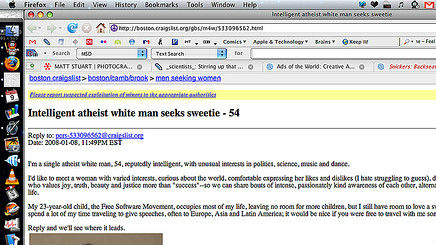The Power of Cosmic Thinking

What’s the Big Idea?
There is a Native American belief that one has the responsibility to think seven generations ahead. While this is a nice sentiment, it’s not good enough, argue Nancy Ellen Abrams and Joel R. Primack in their book The New Universe and the Human Future: How a Shared Cosmology Could Transform the World. Abrams and Primack argue we are living in a cosmically pivotal moment today, and we have a higher level of responsibility than any generation that came before us.
Abrams and Primack write: “We and our children may be the most significant generations of humans that have yet lived,” which means we carry a far greater burden of responsibility than any previous generation.
Through the discipline of scientific cosmology we are starting to glimpse a newly emerging scientific picture of the universe. For instance, we have come to the understanding that we are close to the midpoint of our solar system. The sun is now 4.6 billion years old, out of a potential 10 billion year lifespan. Abrams and Primack argue, however, that we don’t have much time left. The exponential growth of the human race and our consumption of resources must be addressed immediately. After all, once an exponential trend is noticed, the authors argue, “we have very little time left to tip the growth curve and correct it.”
How do we go about that? Abrams and Primack suggest we use the inflation of the universe as our model for a stable period of growth and resource use.
Watch the video here:
What’s the Significance?
If today is the midpoint for our solar system and the midpoint for complex life on Earth, what can we do now to extend the timeline for our descendants? Abrams and Primack write:
We are appropriating for our own consumption a large and increasing fraction of the biological productivity of the entire earth. This is why we need to figure out quickly how to transition out of the current period of worldwide human inflationary growth as gently and justly as possible. Cosmology can help – by providing a model for this seemingly insurmountable task.
The way that cosmology, and cosmic thinking, can help is to provide an accurate big picture of the universe that might motivate people to change enough, fast enough. Abrams and Primack argue that for the human race to take responsible and meaningful action, we must first agree on a common creation story. Some religious people believe the earth was created just a few thousand years ago. Others believe the earth is an average planet “in a universe where no place is special.” As Abrams and Primack argue, both groups are wrong because they are operating “within mental pictures of the universe that we know scientifically are wrong.”
However, the authors also point out that if we were to possess a “transnationally shared, believable picture of the cosmos, including a mythic-quality story of its origins and our origins — a picture recognized as equally true for everyone on this planet — we humans would see our problems in an entirely knew light, and we would almost certainly solve them.”





